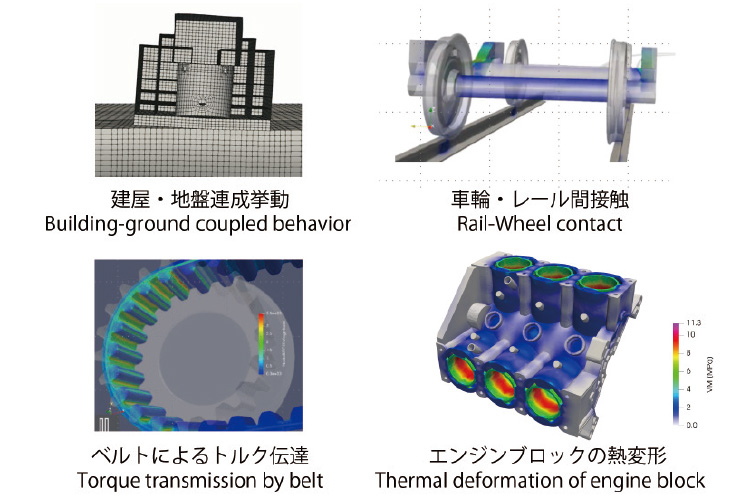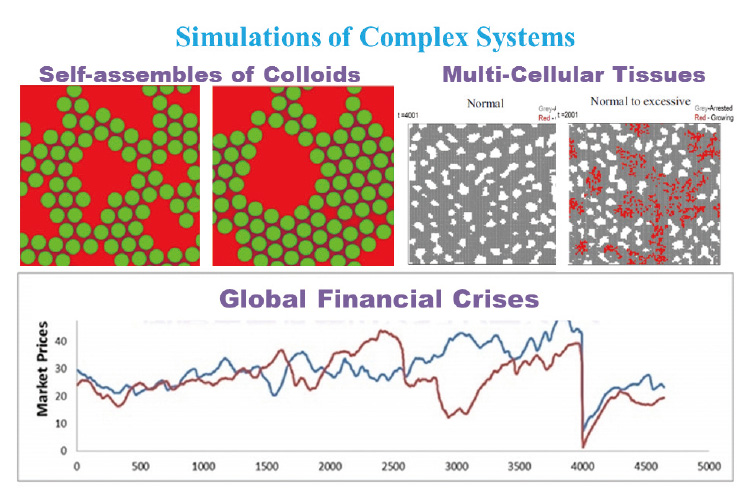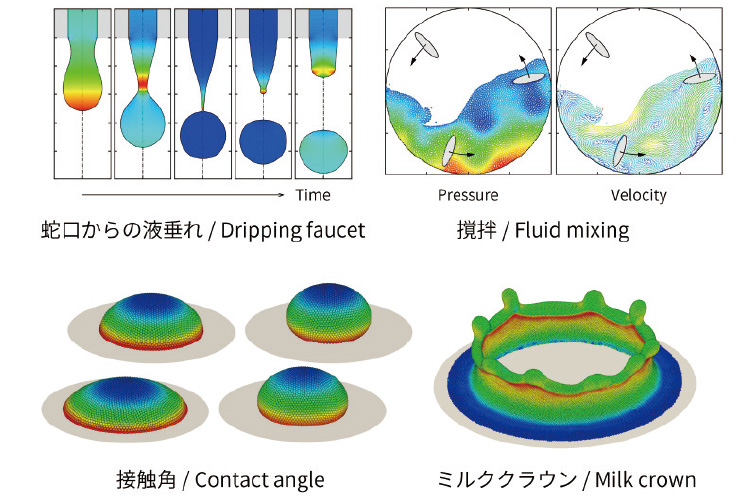Simulation of Complex Environmental Systems
The Multi-Scenario Simulator & Simulation Complex Systems
Driven by computational science and IT techonologies, we challenge complex problems related to human and enviroments with adavaced simulations.
Faculty Members

- OKUDA Hiroshi
- Professor
Based on the mathematics of solid mechanics using the parallel finite element method and the technology of using supercomputers, cloud, and network, we will create practical industrial simulation and green innovation that are useful in a wide range of fields such as machinery, architecture, civil engineering, electronic and electricity. Aiming for this, we are conducting the following research.
- Advancement of parallel finite element analysis system FrontISTR and its industrial applications
- Development of mathematical method for multiphysics problems including coupling with particle method
- Optimization for next-generation computer system
- Enhancement of computing efficiency by AI utilization


- CHEN Yu
- Professor
In the field of simulation of complex systems, we focus on developing discrete microscopic models and utilizing them in simulations in order to gain a deep understanding of complex systems. Our main research themes include agent-based modeling of financial and economic systems, construction of discrete kinetic models to capture complex fluids, cell-based modeling and simulation of biological systems, as well as machine learning for analyzing complex systems. Research subjects range from stock price fluctuations, boiling phenomena, tumor growth, to the diffusion of low-carbon energy. Through tackling these research topics, we aim to understand the structure and dynamics of complex systems in detail and gain new insights into various complex phenomena in the real world.


- MATSUNAGA Takuya
- Associate Professor
This laboratory carries out research on computational fluid dynamics using the particle method. The particle method is characterized by its meshfree calculation framework which enables us to numerically simulate fluid flows with complex gas-liquid interface behaviors. Since flows involving gas-liquid interfaces are ubiquitous in nature and industry, the particle method has been applied to the academic research and the industrial applications in a wide range of fields including automobiles, ships, chemical processes, and computer graphics. However, there are still many complex problems that cannot be solved with the current technology. We challenge the frontier of computational science by developing new computational algorithms, integrating finite element methods, and using advanced HPC environments, and aim to solve the problems faced by industry and society.
